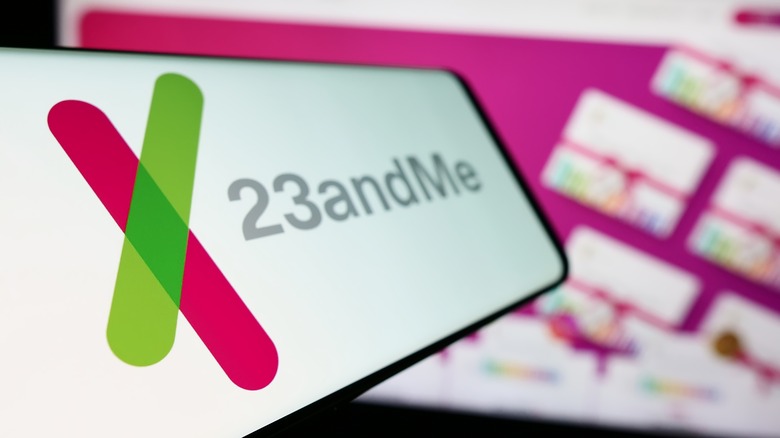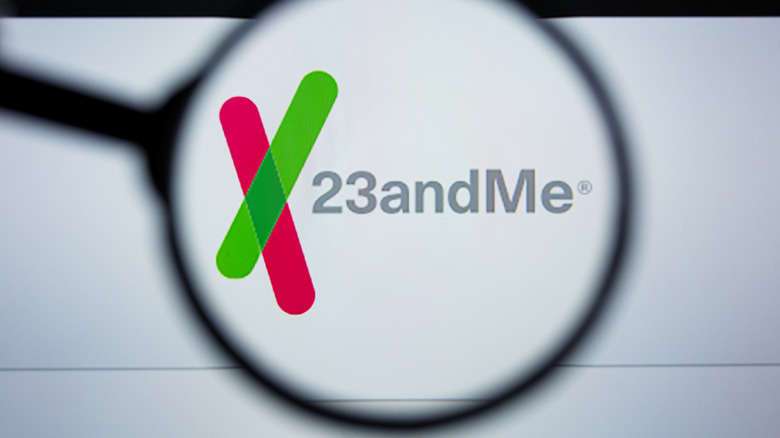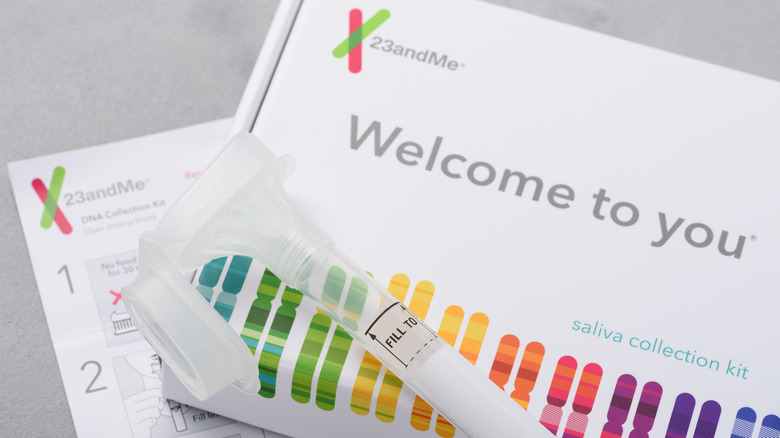How To Delete Your 23andMe Data (And Why You Might Want To)
For nearly a decade, 23andMe has been one of the most popular services offering ancestry reports and even health risk profiles based on a person's genetic sample. Or in this case, a saliva specimen. In a world where a person is always at the risk of a bad actor scooting off with stolen user data and digital fingerprints, 23andMe upped the ante by storing genetic and ancestry information — ripe for serious identity theft risks.
The risks were always there, and the hammer finally came down with a hack in 2023 that exposed the data of nearly 7 million customer profiles. Multiple lawsuits later, and en-masse board resignation, 23andMe is on the verge of imploding. For a company that boasts 14 million customers and is now facing a delisting threat, the biggest question right now is what happens to all the genetic and ancestry profiles of its customers.
Now, we don't know if 23andMe will find a savior, but the data will likely change hands and they may not survive the tides of commercial deals. "If we are involved in a bankruptcy, merger, acquisition, reorganization, or sale of assets, your Personal Information may be accessed, sold or transferred as part of that transaction," notes the company's privacy policy.
Nevertheless, if scandals like Facebook-Cambridge Analytica and the shady shutdown of Google+ have taught us anything, the best way forward is to delete your data instead of entrusting it to the hands of a corporate entity.
How to erase your 23andMe footprint
Users who have used 23andMe services in the past, and are now concerned about the safety of their personal data, can follow these steps to submit an erasure request:
- Open the app or the web dashboard and tap on the profile icon in the top right corner.
- In the menu box that opens, scroll down and select Settings.
- On the settings page, head to the section titled "23andMe Data" and tap the View option corresponding to it.
- On the user data dashboard, you will see an option to download genetic information linked to your genetic profile, such as "Ancestry Composition Raw Data" and "Family Tree Data," among others. You can check the relevant boxes and send a download request. Otherwise, scroll down and tap on the option that says "Permanently Delete Data."
- Next, you will receive a confirmation email on the registered email address, where you need to approve the deletion request for the 23andMe account, as well as the associated data.
- Once you confirm, the requested data and user account will be deleted. Moreover, if you consented to researchers and institutions using your genetic information for scientific research, that sharing will be paused, too.
Do keep in mind that 23andMe will still retain some of the data associated with your account. "While we will delete the majority of your Personal Information, we are required to retain some information to comply with our legal obligations," says the company. However, if you had initially consented to the company storing your genetic samples, they would be discarded, as well.
Bold warnings in a sea of uncertainties
The United States Federal Trade Commission is not oblivious to the situation, and has issued a stern warning to all companies engaged in DNA testing and related business, especially when it comes to protecting such sensitive information. Citing cases like Genelink and 1Health/Vitagene, the agency says these companies were allegedly found engaging in shoddy security practices; such as storing data in a public cloud bucket without even being aware of it, lacking encryption or access safeguards, ignorance of security warnings, storing files in plaintext format, and not creating access guardrails for partners. "If your customer accounts offer data thieves a similar gateway to sensitive data ... properly secure those accounts," adds the agency.
However, warnings aren't always sufficient. American Civil Liberties Union's Vera Eidelman, talking with NPR, pointed at famous cases involving the Golden State murders and a similar incident in Idaho where law enforcement relied on publicly available genetic databases to identify the perpetrators. "This has happened without people's knowledge, much less their express consent," Eidelman was quoted as saying.
23andMe, on the other hand, says it has received multiple requests from authorities seeking access to certain data and genetic profiles, but claims it has resisted all such efforts using legal measures. However, according to the Electronic Frontier Foundation, there are no federal laws currently in place that "clearly protect users of online genetic testing sites like 23andMe," save for exceptions like the Genetic Information Privacy Act passed by the state of Montana last year.


